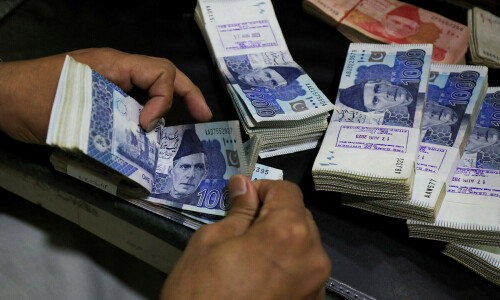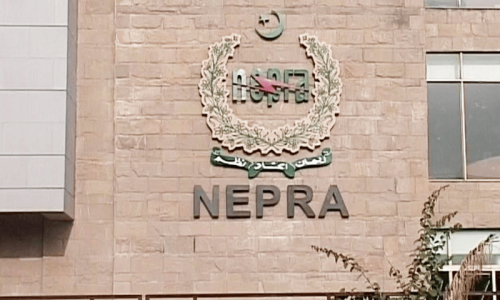ISLAMABAD: On the advice of the International Monetary Fund (IMF), the government has decided to conduct special competition and regulatory audits of the major economic sectors involving a large footprint of the state-owned entities (SOEs) to identify entry barriers for the private sector and ensure fair and competitive environment in the public sector.
Informed sources said the Competition Commission of Pakistan (CCP) had been asked by the Ministry of Finance (MoF) to gear up for undertaking sector-specific studies of power, transport & communications, finance and oil & gas including liquid fuels like liquefied petroleum gas (LPG) and liquefied natural gas (LNG) on urgent basis keeping in mind the requirements of the Public Procurement Regulatory Authority (PPRA) and Public Investment Management Assessment (PIMA) of the IMF.
These sources said a technical mission of the fund had in a report pointed out a series of measures under the PIMA and Climate-PIMA (C-PIMA) and identified critical risks to the public investments, particularly in cases where specific exemption clauses of the PPRA were used for major procurements. Action plans on PIMA and C-PIMA would essentially be part of the upcoming budget 2024-25, to begin with.
In this regard, the MoF had previously asked the CCP to delve into the procurements of LPG and LNG supplies and terminals and examine the competitive environment and regulatory and infrastructure barriers. The CCP had already submitted initial reports on liquid fuels to the government that wanted its expansion to other critical sectors with heavy SOE presence like power, finance, transport and communication, oil and gas etc to strengthen PIMA as required by the IMF and reduce monopolistic tendencies and ease entry of new businesses.
Move aimed at boosting competition by encouraging private sector investments in state-dominated sectors
This is because the private investment participation, according to the fund, is mostly present in telecom, power generation and some transport segments. Private mobile operators hold 99pc of the market share. “In energy, tariffs do not reflect cost so the distribution companies (10 SOEs and one private company) depend on regular fiscal transfers and sovereign credit guarantees” and by January 2023, there were 45 commissioned independent power producers (mostly thermal power plants) and one commissioned transmission line project.
Four of 46 airports are private, and the public company Pakistan International Airline carries most passenger and freight traffic (87pc).
While the CCP would conduct competition studies of these sectors, special committees would be constituted comprising the ministries of finance, planning and representatives of agencies and sectors concerned to hire services of experts of the relevant fields for course corrections.
A comprehensive view of public finances, including the gross expenditures of autonomous authorities and other non-commercial SOEs, would enable more comprehensive asset portfolio management and improve the budget allocation process for maintenance expenses, the IMF believed.
It pointed out that recent changes to procurement rules in the federal and Punjab governments for the award of contracts to SOEs without competition for being “time sensitive and in the public interest” posed the risk of reducing opportunities to a competitive private sector.
Oversight of PPP, SOEs
The IMF had in a detailed synopsis of the public investment pointed out in November 2023 that while Pakistan had reasonable institutional coordination, decision making and monitoring of development spending under the Public Sector Development Programme and Annual Development Plans, the SOEs and other federal government entities that fund infrastructure investment projects from their revenues were not presented comprehensively with other plans.
“This creates the potential for a lack of coordination and limits the visibility of all stakeholders of the investment plans of the public sector as a whole and the risks that they may entail”.
Under the guidance of the IMF and the World Bank, the reform work is already underway to improve central oversight of the public-private partnerships and SOE, although it has yet to achieve any real outcome.
“Competition is functional in some markets. PPP frameworks are incomplete. Comprehensive SOE oversight is not yet in place”, the IMF’s technical mission had recently noted. The MoF is required by the IMF to “reinvigorate action to implement the SOE Triage report prepared in 2021 on the privatisation and restructuring programme for SOEs” by June 2025.
The IMF wanted the government to improve the monitoring of SOEs’ investment plans and improve understanding of how they impact the wider public investment portfolio and the fiscal position.
Published in Dawn, February 10th, 2024














































Dear visitor, the comments section is undergoing an overhaul and will return soon.